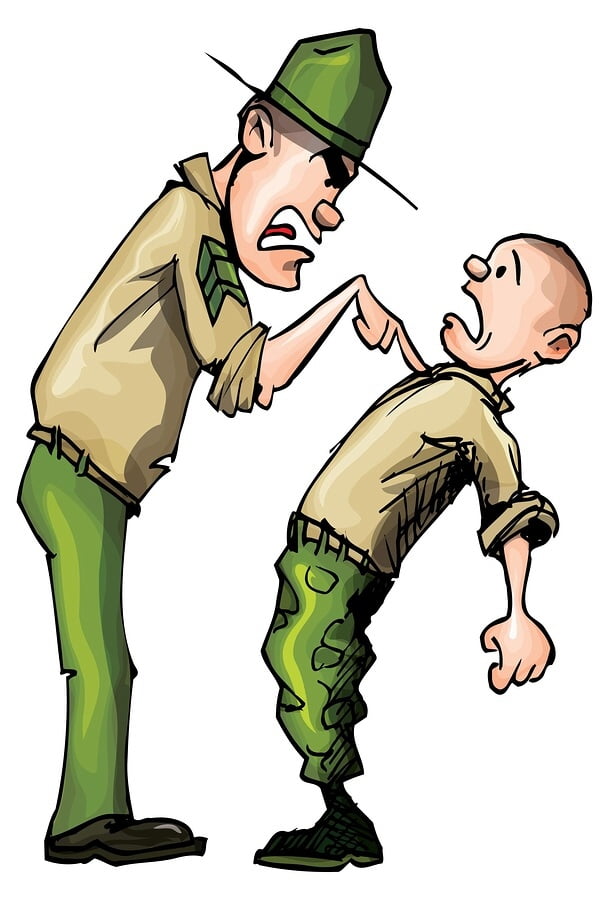Parenting teenagers can bring out the best and worst in us. Knowing which parenting style you tend to use when you’re upset, anxious, annoyed, or trying to cope with your teen growing up can be a game-changer. Which style do you use?
Four styles of parenting

1. The Helicopter
The helicopter parent makes a lot of noise, hovers, and doesn’t go very fast. Helicopters are built to hover, rescue, and protect. This is why emergency response teams couldn’t function without them. But what if you are parenting this way when there is no emergency? Your teenager interprets this as “You’re fragile, and you can’t make it without me.”
Parents often helicopter out of guilt. They refrain from imposing or allowing consequences because they themselves are uncomfortable giving consequences. When their children are hurt, they bail them out because they are hurt too. In short, they won’t let their kids fail.
These parents confuse love, protection, and caring and struggle to tell them apart. Teens who grow up with parents who treat them this way tend to expect the world to do everything for them, or for their parents to do everything for them. They are at risk for being entitled and for not learning how to make their own way or express themselves in the world.

2. The Drill Sergeant
These parents are all about getting into action right now. They believe that children need to grow up to be obedient. Threats are their main tool – such as “Clean your room right now, or you’re grounded.” Oftentimes, the threats are also unrealistic, such as “If you don’t do the dishes, you’ll never leave this house again.” Typically, the angrier the drill Sergeant parent is, the more imaginative, cruel, and unrealistic the threats become.
Teens with parents like this often do not know how to make decisions because they always have parents barking orders at them. They never develop an internal voice. These teens are often prone to rebellion. However, they will find other rebellious teens to copy because they’re still struggling to find their own way. These teens often struggle as young adults to discover their own passions and develop strong relationships because they are expecting other people to tell them who they are and what to do.
The adult world doesn’t operate on punishment; it operates on consequences. Teens interpret their punishments as “you are too dumb to think for yourself.” For these parents, we often recommend learning how to share consequences with their teens rather than punishments to support their teens in developing healthy independence.

3. Laissez-Faire
These parents let children raise themselves by themselves. These parents believe that if left to their own devices, teens will grow into successful, creative people if parents just would not interfere. Other times, these parents believe that they need to be their teen’s best friends and struggle with holding them accountable.
We believe that this is not a parenting type but an abdication of parenting responsibilities.
Teens interpret this lack of parental support as “you don’t care about me” and often start acting out to get attention or a rise from their parents so they know that they care. These teens may do crazy or absurd things in order to try and get a rise out of these parents. These teens want to know that their behavior impacts other people and are trying to discover the boundaries of the world.

4. Consultant
This parenting type asks questions and offers choices. The consultant parent burdens the teen with decision-making while being clear about their limitations. They do not allow themselves to be abused. These parents do not shout or scream at their teens, and they do not perform rescue missions.
They understand that their teens are captains of their own fate.
Being a consultant parent involves letting go of the idea that you can control or influence your teen by asserting dominance. This parenting type encourages self-respect and allows teens to make their own mistakes. We’ve discovered three rules of consultant parenting:
- Take good care of yourself.
- Provide your child with choices you can live with.
- Take action.
Each of these rules will support your teen in making their own choices and developing freedom while allowing you to protect your sanity.
Shifting into a consultant role
It is challenging for parents to shift from raising children, where they are essentially benevolent dictators, to raising teenagers and stepping into a consultant role.
To help make that transition:
- Use ownership language. Let them know your limits and thoughts without making it about them.
- Do not take ownership of your teenager’s problems. Muse or be curious – but understand it’s their problem to solve.
- Thoughtful and curious questions about their lives go a very long way. (avoid lectures, rants, and “telling them how it is”)
- Have an attitude of curiosity (avoid sarcasm or demeaning tones)
Read more about these four styles from Jim Fay!
If you need more help
Understanding the different parenting styles and their potential impact on your teenager is a crucial part of fostering a healthy and productive parent-teen relationship. Antelope Recovery understands the challenges of parenting and is here to support you in finding the right approach for your family. By embracing the consultant role, you can create a dynamic, open, and respectful environment in which your teenager can thrive, making informed decisions and ultimately becoming a responsible and self-reliant adult. If you need help making that shift, Antelope Recovery is here to support you.


